

A survey of advisers' expectations for the next 12 months shows the only consensus is that there's a rocky road ahead.
InvestmentNews surveyed the industry on its outlook as it heads into the second half of a year that has already sent markets, the economy and the day-to-day operations of financial advisory firms into uncharted territory. Advisers shared sentiments on their business environment as well as their broad investing plans for the next quarter.
A majority (60%) of advisers expect the overall stock market to improve over the next year, though they were less confident about the underlying economy.
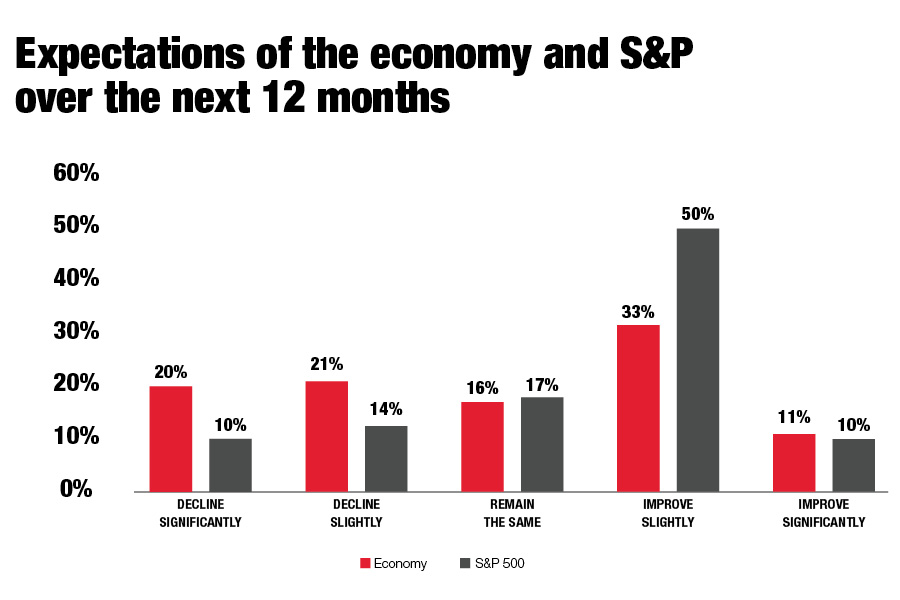
On median, bulls projected a 7% rise in the S&P 500 over the next 12 months, while bears projected a 12% decline.
Although advisers were generally optimistic that markets and economic activity will be higher a year from today, few predicted an entirely smooth interim. About half believe the S&P is highly likely to experience another pandemic-driven decline of 10% or more in the next year.
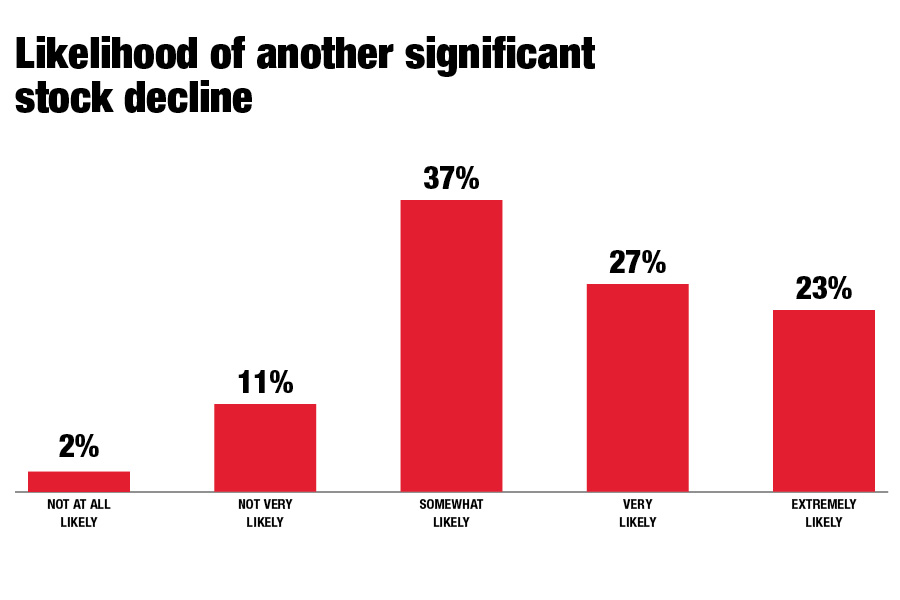
Most advisers were also at least moderately concerned that political and regulatory developments over the next 12 months could negatively impact their book of business.
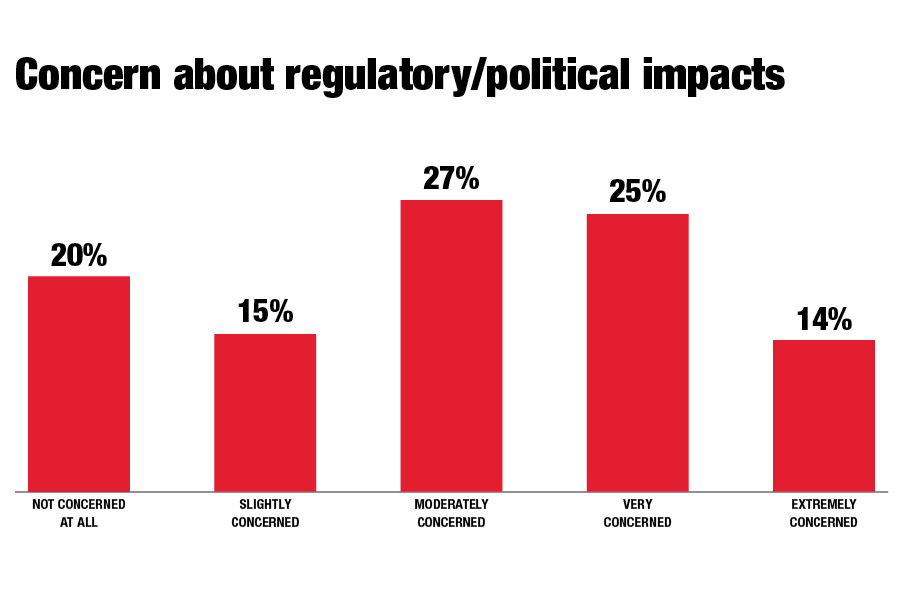
ESG funds are poised to make gains over the quarter, with 45% of advisers who deploy the products in their portfolios planning to increase their usage. Other products that are expected to gain in popularity reflected an environment of uncertainty and an increased emphasis on finding alpha, with 28% of all advisers planning to increase their usage of actively managed ETFs and 21% expecting to purchase more individual stocks over the next three months.
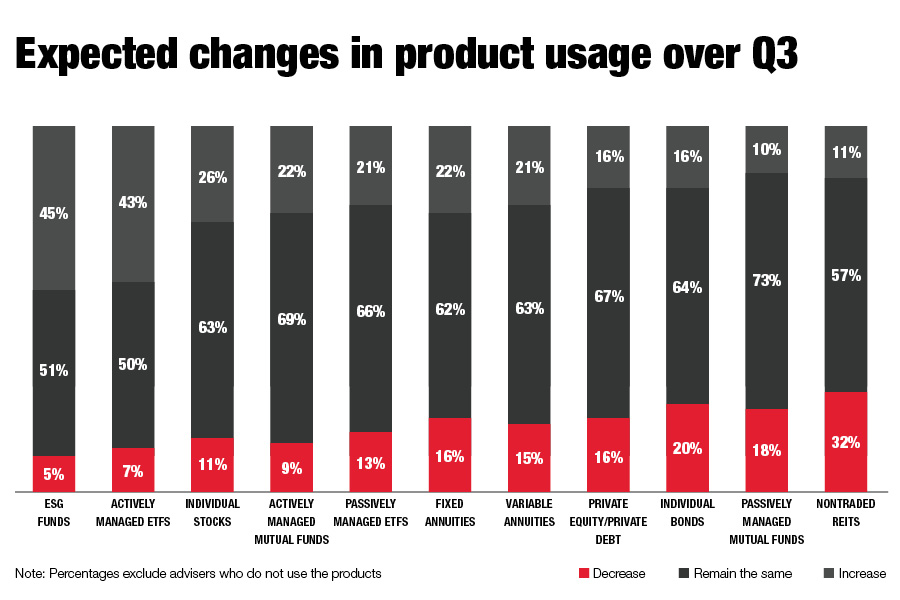
Zooming out to underlying asset classes, real estate assets were poised for net selling as pandemic lockdowns cast doubt on the future of commercial real estate.
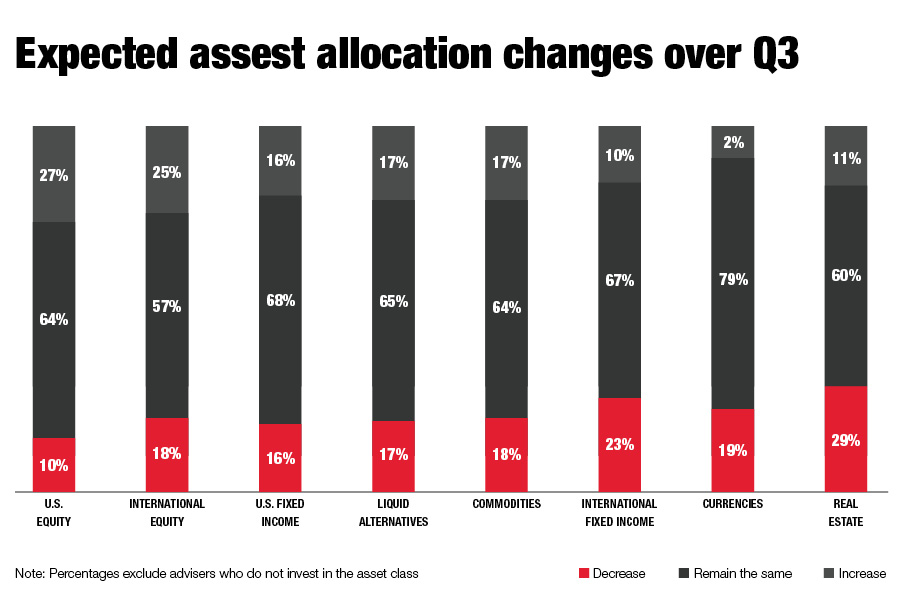
U.S. equities' leadership among asset classes may reflect advisers’ collective expectation that the recession that began in February will be relatively short-lived. A plurality believe that it has either already ended or will have by the end of the year. Among the rest, few expect the recession to drag past the first half of 2021.
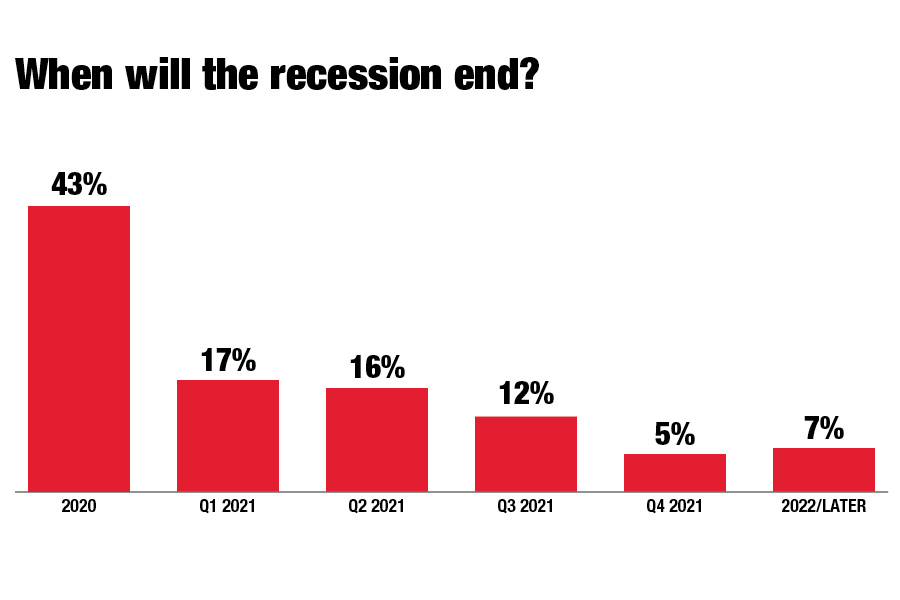
Interestingly, advisers’ view of the economic recovery appeared to be shaped by their work environments, Fifty-seven percent of advisers whose firms have already resumed onsite work expected the economy to emerge from recession by the end of the year. But among advisers whose firms have permanently expanded remote work arrangements or plan to reopen later than September, only 32% expected the downturn to be so brief.
[Interested in even more ESG news? Check out InvestmentNews’ ESG Clarity US]
This survey, conducted via email between July 6 and July 16, includes responses from 159 financial advisers and closely related professionals. All respondents worked at industry firms, and more than 90% personally managed client assets. For questions about IN Research offerings, contact [email protected].

For service-focused financial advisors who might take their well-being for granted, regular check-ins and active listening from the top can provide a powerful recharge.

With Parkworth Wealth Management and its Silicon Valley tech industry client base now onboard, Savant accelerates its vision of housing 10 to 12 specialty practices under its national RIA.

Meanwhile, $34 billion independent First Manhattan welcomed New Jersey-based Roanoke Asset Management, an RIA firm with more than 40 years of history.

Most notably, two chief compliance officers have also recently left the firm.

The latest team to join Cetera, led by a 29-year veteran professional, arrives with roughly $380 million in AUA from OSJ Private Advisor Group.
Orion's Tom Wilson on delivering coordinated, high-touch service in a world where returns alone no longer set you apart.
Barely a decade old, registered index-linked annuities have quickly surged in popularity, thanks to their unique blend of protection and growth potential—an appealing option for investors looking to chart a steadier course through today's choppy market waters, says Myles Lambert, Brighthouse Financial.
